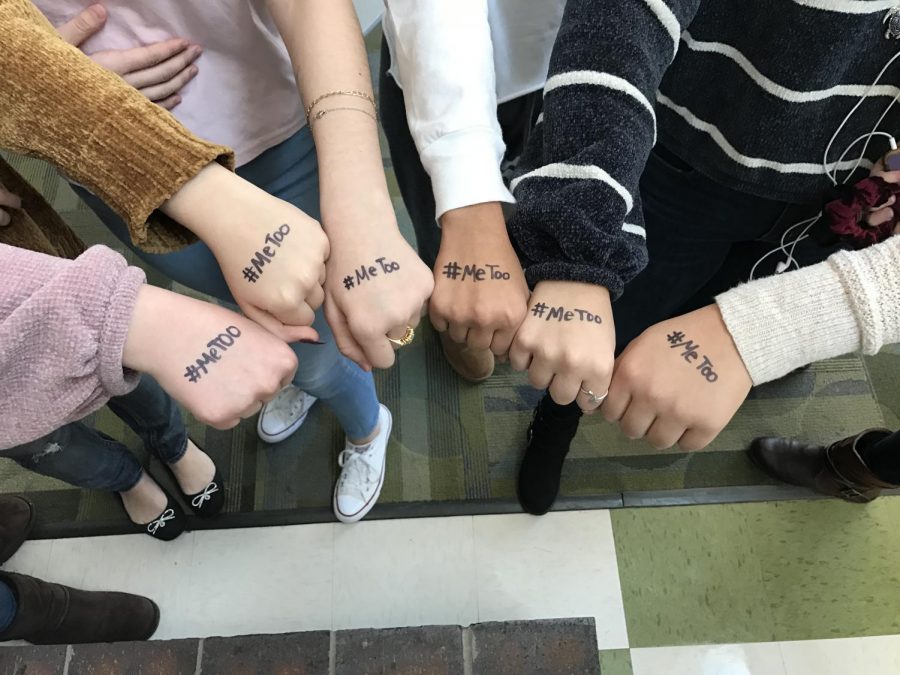Sexual Assault: What Can We Do?
The recent explosion of sexual harassment allegations against influential people (Kevin Spacey, Harvey Weinstein, Matt Lauer, Al Franken, etc…), is shining a light on the alarming number of people who are assaulted and don’t speak about it. Generally, it is known that 1 in every 4 women are sexually assaulted. But due to the flood of people sharing their stories, there could be a potential change in that statistic. In order to dig deeper on this topic, we need to clarify exactly what is sexual assault.
According to RAINN, the nations largest anti-sexual violence organization, the term sexual assault refers to sexual contact or behavior that occurs without explicit consent of the victim.
In the society we live in today, it is extremely important to know what to do if you have been sexually assaulted. According to Mariana Velazquez, the Revive Youth Counselor at Doorways for Women and Families, an organization that “creates pathways out of homelessness, domestic violence and sexual assault,” there are many options to take after sexual assault: such as going to the hospital, calling a hotline (24 hours Doorways hotline), or going to the police. There are many different ways to handle the situation, but there is no right way to react.
The reaction of people supporting the survivors can have a tremendous impact on the healing process. According to Linley Beckbridge, an author at Doorways, the most important reaction that the supporter should have is to believe the survivor. Another impactful response is reassuring the survivor that it is not their fault. According to Dr. Holtz, one of Wakefield’s psychologists, it is important for the supporter to be a good listener. Overall, the supporter should believe, listen and not judge.
As for protection, there is just no way to prevent an assault. It is never the victim’s fault. According to Ms. Beckbridge, “there may be websites telling people not to wear certain types of clothing and that is just wrong, because it infers that it is the victim’s fault that they got into that position in the first place.”
These websites demonstrate our society’s role in survivors choosing to share their story. Despite the common knowledge that it is never the victim’s fault, society still makes them feel the exact opposite. Not only that, society can make them feel as though they are ruining someone’s life and image, instead of just trying to seek justice for themselves. In an Instagram post, actress and model, Cara Delevingne (one of Weinstein’s assault survivors) shared, “I was so hesitant about speaking out….I didn’t want to hurt his family. I felt guilty, as if I did something wrong.”
According to Dr. Holtz, although sexual assault has always been part of society, people fear they will be doubted. What’s happening right now, the sudden burst of sexual assault stories coming to light, is due to the empowerment that the first few survivors coming out gave to other apprehensive victims.
A good thing about society is that for every doubt, there is support, which is what the #MeToo movement displays. This movement is a place where sexual assault survivors can share their stories and feel like becoming a source of inspiration for someone else. It has also highlighted the magnitude of people who have gone through some sort of unwanted sexual advances. This movement helps people understand that even if people choose not to share their story, it does not make their experience any less real or important.
At the end of the day, this issue will always be a part of humanity’s many problems. It is our job to believe, accept, and respect anyone brave enough to come forward.

Hey guys; I'm Carla. I'm a Co-Editor in Chief on The Chieftain and this my third year in journalism. I like to listen to all different genres and languages...

Hi I'm Alejandra! I'm a senior and this is my third year writing for The Chieftain. Some of my interests include reading, plants, and my kitties. I'm very...



